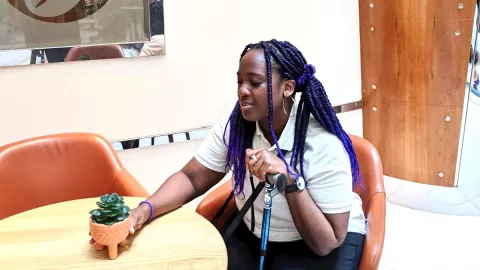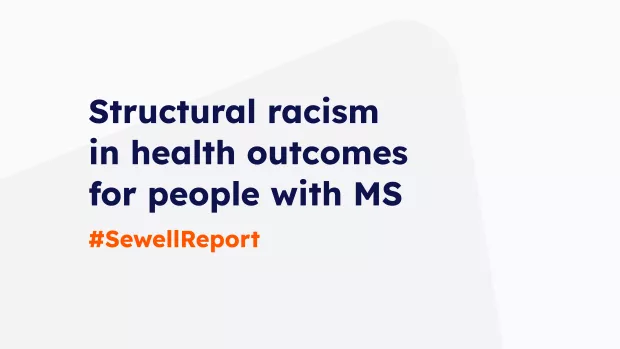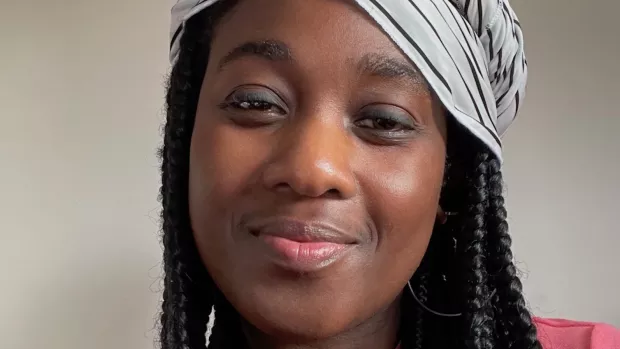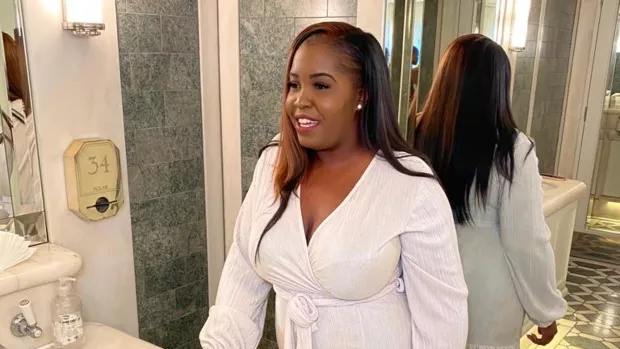
MS and stigma in the Black community
Natalie lives with MS. She set up her non-profit group ‘The Nerve of My Multiple Sclerosis CIC’ in July 2022.
When I was first diagnosed with MS, I felt very lonely. I didn’t see any representations of people with MS who looked like me. I felt like it was a white person’s disease.
In my African community, we don’t talk about illness at all. Often, you don’t find out about someone’s illness until you’re at their funeral.
I’m very open about my MS, which has caused some tensions with my family. I have some aunties, uncles and cousins who don’t speak to me now. One auntie asked me “why do you have to talk about it?” I tried to explain to her the importance of education and awareness raising. If I had to go to hospital, I need my family members to be able to tell the doctors what kind of treatment I’m on, and that I have MS.
Speaking out about MS
I found out a friend from school was also living with MS. But I only heard about it because my mum happened to be talking to her mum. She wasn’t very open about her MS and was lacking a lot of information. For example, she was really surprised when she found out I had two children. She’d assumed she wouldn’t be able to have kids because of her MS.
This experience made me realise I needed to do more to speak out about MS in my community.
Launching 'The Nerve of my Multiple Sclerosis CIC'
A family friend said “You’re doing all this work, but you could have a lot more impact in the community if you set up a non-profit.” So that’s what I did! Shortly after setting it up, the National Lottery called us and gave us our first grant.
We’ve had so many online meetings. But we’ve realised that people wanted to get involved from across the UK, in person.
We’ve been running focus groups and trying to figure out how best to serve our community. We recently ran our first community event and are planning more awareness-raising and social events.
There was an amazing moment after our event. A lady came up to me and told me she’s had MS for four years, but hadn’t told her family. She said that, after coming to the event, she finally felt ready to tell them.
At the moment it’s just me and two of my friends running things – we have so much to do! I want to build up the team and get more people involved. In the future, we want to recruit Black people with MS to be part of our board. We want to empower Black people with MS and have them as the key decision makers for the organisation.
The Black community and MS charities
I think charities need to do a lot more work to engage with people from Black communities, and I want to help. For example, I’ve been doing some work recently with the UK MS Register. The research team I’m working with saw an Instagram post on our organisation’s Instagram account. The post was about how MS has different faces, to show how MS affects all cultures and backgrounds.
The Instagram post made the research team realise the UK MS Register’s leaflet imagery is very white-centric. So I’ve been speaking to the research team about diversifying this.
“This is what MS looks like”
Black people are part of the MS community, but at the moment, many of us don’t feel like we are. MS is isolating already – but it can be even more isolating when you don’t feel like you belong. That’s what I want to change. I want us to feel part of the wider MS community.
Our message is: “This is what MS looks like.”
I wish there had been a community like this when I was first diagnosed. I would’ve realised I wasn’t alone. It’s not just me going through this.
Being so open and vulnerable about my journey with MS has opened so many opportunities. For instance, I recently found out I’ve been nominated for a National Diversity Award. It honestly feels like an out of body experience! I’m so grateful for the love and support.




